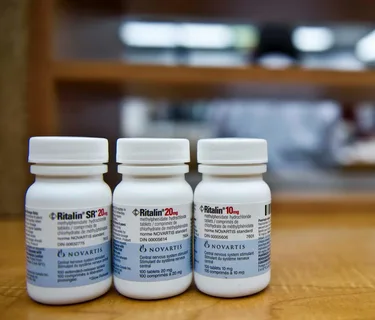
Vyvanse is one of the most popular stimulant medications. It is available as a capsule and can be split to increase the dose if necessary. It can be taken with or without food.
Common side effects include loss of appetite, dry mouth and trouble sleeping. If these persist, talk to your doctor.
Dosage
Vyvanse is usually taken once a day, in the morning. Your doctor will probably start you on a low dose and increase it gradually to avoid side effects.
In the body, lisdexamfetamine is converted to dextroamphetamine by red blood cells. This process can take up to 14 hours. This slow release gives the drug its “slow-release” mechanism, even if it is snorted or chewed.
Lisdexamfetamine is a controlled substance and has a risk of misuse and dependence. It also may interact with other medications and cause serious side effects.
Always take Vyvanse exactly as your doctor has prescribed it. Never take it more often or in larger doses than recommended. Keep this medicine in a safe place to prevent others from taking it.
Your doctor will check your child’s growth and weight during treatment. You should also tell your doctor if you or your child has a history of heart disease, high blood pressure, depression, mental illness, or other problems.
Side effects
Vyvanse, or lisdexamfetamine dimesylate, is a central nervous system stimulant that affects chemicals and nerves to improve attention and impulse control. It is FDA approved to treat ADHD in adults and children 6 years of age and older. It can also help with moderate to severe binge eating disorder (BED) in adults. Stimulants can cause a dangerous increase in heart rate and blood pressure, so they should be avoided in people with certain health problems or preexisting conditions.
Common side effects include dry mouth, loss of appetite, trouble sleeping and anxiety or irritability. In BED studies, weight loss was a side effect for nearly a third of patients.
Avoid mixing this medication with antacids, acidic foods or medications and diuretics as they may reduce your body’s ability to absorb the drug. It should also be avoided with other medications that raise blood pressure or heart rate. Pregnant women should only take this medication under close medical supervision.
Precautions
If you or your child experiences any serious side effects, call your doctor right away. These include a change in vision, problems with balance or dizziness, and sudden shortness of breath. You should also call if you or your child is having thoughts of harming yourself or others, feeling agitated, or having new or worse behavior problems.
It’s important to tell your doctor about all of the medications and supplements you or your child are taking, including over-the-counter (non-prescription) drugs and herbal products. You should also talk to your doctor if you or your child are breastfeeding, as Vyvanse passes into breast milk and may have undesirable effects on your infant.
If you’re using the oral capsules, swallow them whole or open them and mix their contents (powder) with water, yogurt, or orange juice and drink them all right away. Do not store the mixture. If you use the chewable tablets, chew each tablet completely before swallowing.
Overdose
Vyvanse is a powerful stimulant that, when misused, can cause psychological or physical dependence. This medication is available in oral capsules and chewable tablets and should be taken only as prescribed by a doctor. Taking too much can be dangerous and lead to overdose. Overdoses with stimulant medications have increased in the United States, and many of these cases are the result of drug abuse.
Mixing Vyvanse with other drugs can increase the risk of overdose. Combining this medication with street drugs, such as cocaine, or other prescription medications, such as SSRIs (Zoloft and Prozac), SNRIs (Cymbalta and Effexor) or MAOIs (Eli Lilly and Company’s Cymbalta), can lead to serotonin syndrome, which can be life-threatening.
Amphetamines like Vyvanse increase dopamine and norepinephrine availability by blocking reuptake inhibitors, so more of these chemicals remain in the synaptic cleft to act on post-synaptic receptors. Misusing this medication includes abusing it to feel high or experiencing withdrawal symptoms when you stop taking it.40 mg vyvanse